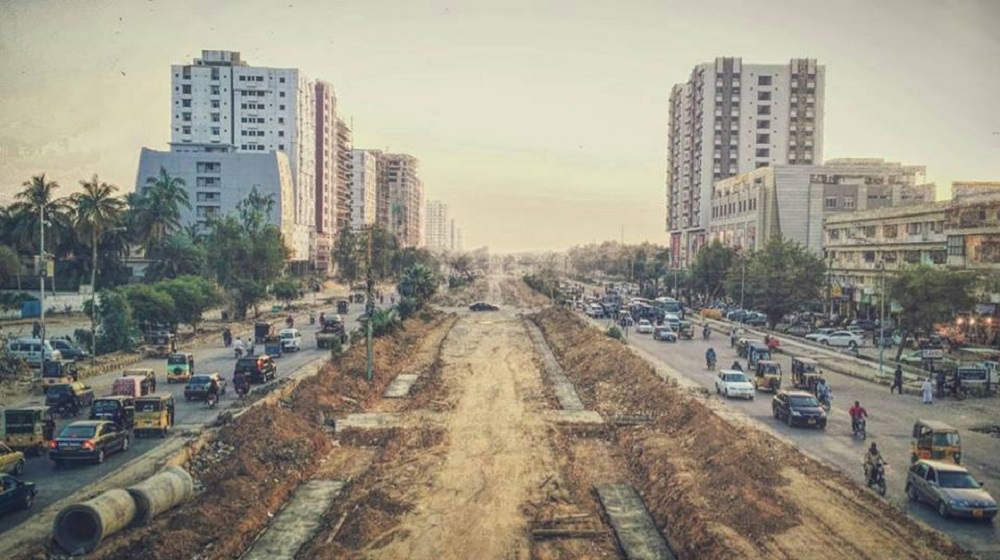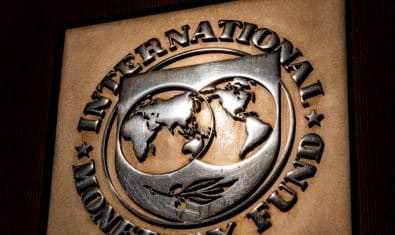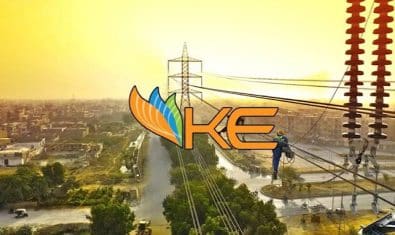Karachi needs an estimated US$9 billion–US$10 billion in financing over a 10-year period to meet gaps in three sectors: urban transport, water supply, and sanitation and municipal solid waste, says a World Bank Group Study.
It is because of the fact that the current infrastructure spending by the public sector in Karachi is well below these requirements, despite massive increases.
The availability of public financing for Karachi’s needs is limited, which substantially increases its opportunity cost. Collections of the urban immovable property tax from Karachi (and Sindh) remain dismal. Global experience shows that urban property tax is an important source of financing for cities. Punjab collects four times as much from this tax as Sindh every year.
ALSO READ
Karachi’s Contribution to Pakistan’s GDP Becomes Stagnant: World Bank Group
The solution is to leverage significant and diverse sources of financing—both public and private. Provincial and local governments have three general types of instruments to meet Karachi’s financing needs:
(i) fiscal transfers (federal taxes) from higher levels of government
(ii) their own sources of revenue, provincial taxes like GST and
(iii) instruments for leveraging other sources of financing.
In the short and medium terms, policymakers in Karachi need to focus on improving the use and efficiency of the following fiscal instruments to mobilize higher levels of financing:
- Urban property tax.
- Enhanced conditional fiscal transfers to local governments.
- Management contracts with the private sector for municipal service delivery in the city.
In the long term, policymakers must leverage more advanced sources of financing by creating an enabling environment, via policy reforms and innovations, such as the following:
- Explicit performance-based grants for local governments
- Instruments for land-value capture, which will enable shares in the benefits of increases in private land and property values due to infrastructure improvements, especially around planned mass transit stations
- Subnational or municipal bonds, enhanced credit, and/or loan options through guarantees—such as those issued by sovereign entities or multilateral organizations—that will enable governments to obtain private and/or institutional financing.
- Innovative public-private partnerships, special-purpose vehicles, and infrastructure funds to invest in Karachi’s needs
Roadmap for Transformation of Karachi into a Livable and Competitive Megacity
In addition to large-scale public and private financing, Karachi needs difficult reforms to improve its urban governance, institutional capacity, and coordination so that it can become a more economically productive and livable city.
The roadmap is based on four key pillars that will be important for the city’s transformation:
Building Inclusive, Coordinated, and Accountable Service-Delivery Institutions
Create strong coordination mechanisms among various public land-owning and service-delivery agencies. Improve the ability of these agencies to plan, finance, and manage development programs. Empower local governments to take the lead in city management.
Greening Karachi for Sustainability and Resilience
Invest in environmentally sustainable infrastructure gaps and safeguard funds for its maintenance. Create mechanisms to protect vulnerable groups from the negative impacts of economic growth and climate change. Build a resilient and sustainable environment with an emphasis on livability and regeneration.
Leveraging Karachi’s Economic, Social, and Environmental Assets
Involve the private sector in infrastructure provision by creating an enabling environment via policy reforms. Create incentives for more efficient performance by service delivery agencies. Improve the ease of doing business and encourage public-private partnerships. Reduce delays and discretionary power for key business transactions under city and provincial authorities. They need to improve cost recovery and revenue collection for basic services while safeguarding vulnerable groups such as the poor. Finally, they need to leverage the city’s land assets (such as state-owned land in prime locations) to finance critical infrastructure.
Creating a Smart Karachi Through Smart tools and Technologies
Innovate with smart policies to better manage city services, improve economic competitiveness, and facilitate engagement with citizens. Interventions should also focus on improving the ease of doing business to help enable economic growth and job creation.
Concluding Thoughts
Karachi is the cosmopolitan city, also called mini Pakistan as you can find people from all parts of the country. The contribution of Karachi to the national economy has been outstanding and recognized since the creation of Pakistan.
Of course, the study of World Bank group truly addressed the issues, challenges and roadmap but it is merely a reminder for our political leadership, bureaucratic setup, state machinery and the general public as well. It is a reminder or an updated version of the to-do list for Karachi’s development.
There is no leadership at all that claims the ownership of Karachi and the residents don’t take care of the city as well.
Economic managers suggested that investing in infrastructure will translate into a rapid increase in revenues for the federal and provincial governments. Investing in the system and development of sustainable policies can attract billions of dollars of investment in the city due to its strategic and commercial location in the region. And this all benefits the country and not just Karachi.
All this can be possible. If there is a will, there is a way.



























Great city screwed up by traitors like Altaf Hussain & his close associates including Musharraff who re energized & protected MQM.
Not just MQM, PPP equally involved in destruction of Karachi as well as whole Sindh.
The only party left to screw is PTI